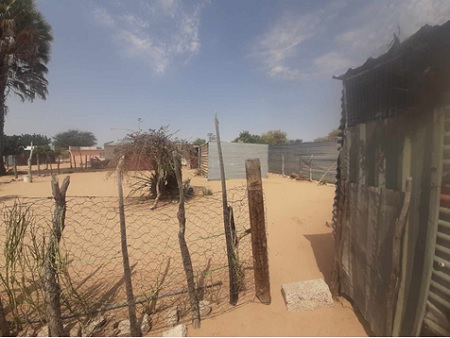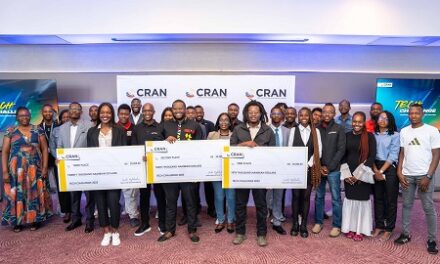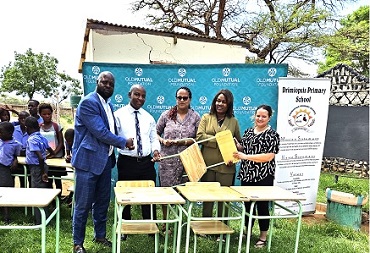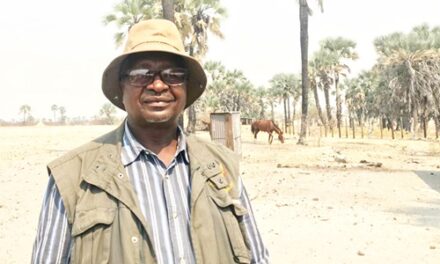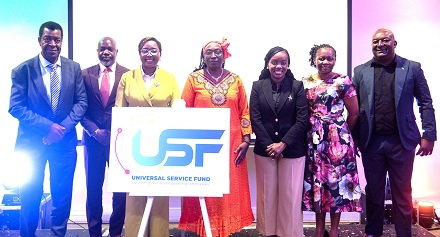By Shivute Kaapanda /
Omonawatjihozu is one of the densely populated informal settlements of Ruacana, a town in the western side of Omusati Region, well-known for its proximity to agricultural irrigation fields and the tourism potential from the Ruacana Water Falls.
Ruacana is also known for its Ruacana Hydro-power Station which supplies all the electricity needs of northern Namibia, as well as its proximity to Kunene River which supplies water to all the northern regions of the country.
As a result people in the surrounding villages are flocking to town in search of employment, better education and healthcare.
Ruacana is relatively a small town in comparison to most other towns in northern Namibia, comprised of only two extensions, being Extension 1 (formerly ‘the town’) and Extension 2 (Oshifo); Oshifo being the administrative and central business district, where the Council’s office is, a NaTIS office is, the health centre is, as well as the main shopping complexes.
Other but smaller informal settlements of Ruacana are Okapika, Otjondeka, Okonyota, and Okalukanda kaNaango.
The area of Ruacana is mostly inhabited by Ovazemba and Ovahimba communities, but many other language groups have been drawn to Ruacana in hope of a better life.
While the story of potential and hope for a better life in Ruacana is what one tends to hear from people who have never been to Ruacana, the story of hopelessness and poverty is what is visible on the faces of those who live in these informal settlements of Ruacana.
When Omutumwa visited Omonawatjihozu (also known as Iinyakwi) informal settlement one of the residents, Meme (Mrs) Julia Ndawedapo, was the first person to open the door of her home to the reporter.
Meme Julia has been living in the settlement since 1982 when she was born, at the time when the settlement was just a village. She shared her experience of facing daily difficulties as an unemployed single mother, living with no municipal water.
She lives with her daughter who goes to Otjihozu Combined School. She has no income, but sustains herself and her daughter by selling traditional liquor (epwaka and otombo) as well as beer.
She also sells cooked food like fish from Kunene River and soup to those who come to buy the drinks. She has pre-paid electricity at her plot but she uses firewood to cook as electricity is expensive.
Sometimes she only uses it for lighting.
“I was born here but as you can see we don’t have water here, we buy water at the neighbor’s house there,” she said, pointing in the direction of another shack.
“Life is difficult. Those of us who live in informal settlements were promised drought relief food since Corona time but up to now we didn’t get drought relief food.”
Meme Julia lives on a rented plot, R-307. While the shack belongs to her, the piece of land still belongs to the Council.
Another resident, Ms. Elly Nehale Mbambi, also gave her story to Omutumwa. She relocated to Omonawatjihozu informal settlement in 2008 from Omahenene village.
She lives on a rented plot (R310) with no electricity, and according to documents seen by Omutumwa she has applied for electricity since 12 June 2017 but she has not gotten electricity supply up until now.
Mbambi lives with other seven occupants including her son who goes to school. “No one is formally employed here, my niece is working at a China shop in town and I am here selling epwaka and beer so I can make a living,” she told Omutumwa.
“These days I usually go to help out as an assistant teacher at a local kindergarten at Okapika, and it’s very far as I foot every day and now my business is affected as no one is helping customers, I only sell when I come back from work,” she continued telling her story.
“Our water is closed since Corona time when the town council gave us relief on water, but when Corona ended they closed their water supply, and they told me I have a bill of N$20, 000 which I owe the municipality and I cannot afford to pay such a huge amount, now we only buy water from the neighbors.
“I have lost hope in the town council and its management and in Government and I don’t think I am going to vote this year,” Mbambi narrated sadly.
Omutumwa sent questions to the CEO of Ruacana Town Council, Mr Malakia Iileka, on the state of informal settlements and the plight of people living under deplorable conditions especially with regard to housing.
Mr Iileka responded that the Council is very much aware of such a sorry state of affairs of its residents hence it is trying its level best to overcome these circumstances by mitigating factors such as building toilets for the residents, providing water and pre-paid electricity.
Iileka also highlighted that despite the growing population in town and particularly the informal settlements the Council has plans of providing low cost housing to its residents despite the economic conditions in the country.
“The council has a plan in place to provide housing and all other human needs to the residents of Ruacana,” he stressed.
Omutumwa also spoke to a local authority Councillor of Ruacana, Hon. Penda Alweendo, who is also a member of the Council’s management committee, on the Council’s view about the state of informal settlements, to which he said the Council is aware and it is deliberating on such issues to serve its residents and pave way for development to make Ruacana a better town despite financial constraints experienced due to the economic crisis.
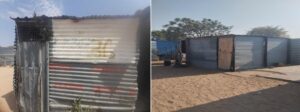
In the photos: Shack R-307, where Ms. Julia Ndawedapo lives with her daughter in the informal settlement of Omonawatjihozu in Ruacana. In another image is R-307 Bar where Ndawedapo sells epwaka and otombo, and also R-310, the house of Ms. Elly Nehale Mbambi.

[NB. This article was produced with the financial support of the European Union. Its contents are the sole responsibility of Omutumwa and do not necessarily reflect the views of the European Union or any of its partners.]

